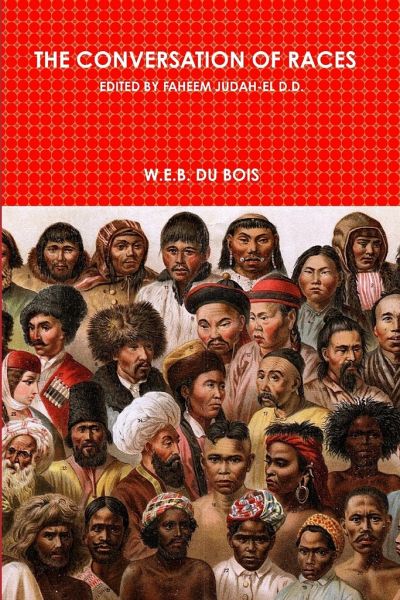
THE CONVERSATION OF RACES EDITED BY FAHEEM JUDAH-EL D.D.
Versandkostenfrei!
Versandfertig in 1-2 Wochen
16,99 €
inkl. MwSt.

PAYBACK Punkte
8 °P sammeln!
William Edward Burghardt "W. E. B." Du Bois (1868-1963) was a leading African-American sociologist, writer and activist. Educated at Harvard University and other top schools, Du Bois studied with some of the most important social thinkers of his time. He earned fame for the publication of such works as Souls of Black Folk (1903), and was a founding officer of the National Association for the Advancement of Colored People (NAACP) and editor of its magazine. Dubois also taught at Wilberforce University and Atlanta University, and chaired the Peace Information Center. Shortly before his death, Du...
William Edward Burghardt "W. E. B." Du Bois (1868-1963) was a leading African-American sociologist, writer and activist. Educated at Harvard University and other top schools, Du Bois studied with some of the most important social thinkers of his time. He earned fame for the publication of such works as Souls of Black Folk (1903), and was a founding officer of the National Association for the Advancement of Colored People (NAACP) and editor of its magazine. Dubois also taught at Wilberforce University and Atlanta University, and chaired the Peace Information Center. Shortly before his death, Du Bois settled in Ghana to work on the Encyclopedia Africana.












